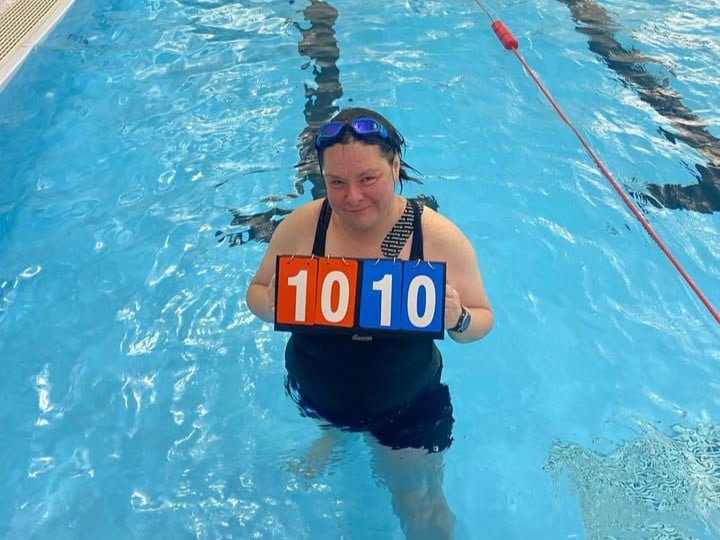Mammoth Swimathon raises funds for Fit and Fed in Merthyr Tydfil
Mammoth Swimathon raises funds for Fit and Fed in Merthyr Tydfil

Merthyr Tydfil Housing Association’s Community Development Manager has completed an epic Swimathon challenge in aid of the local Fit and Fed provision.
On Friday 21st March, Bethan Thomas undertook the mammoth challenge of swimming the length of the English Channel, 22 miles, at her local leisure centre – equating to 1408 lengths of the pool.
The challenge was in aid of Fit and Fed Merthyr Tydfil, a holiday hunger project that provides free access to physical activity and nutritious meals across 16 sites. In a borough with the highest rates of child poverty in Wales, Fit and Fed Merthyr Tydfil provides a lifeline to families by ensuring that they are in walking distance of a Fit and Fed site, and guaranteeing that they have at least one nutritious meal a day during the school holidays. This year alone, the project has supported 1,715 different children and young people and has provided 2,786 healthy meals as part of the project.
The StreetGames Wales team went down to the leisure centre on the day to cheer Bethan on in her challenge. She pushed herself to the limit, completing the amazing feat in 18 hours – finishing her final length at 1:21am.
Bethan’s efforts have so far raised over £8,000 through sponsorship and local business donations. All money raised will go directly to Merthyr Tydfil Housing Association and will be used to help them with the delivery of the Fit and Fed programme.
You can hear more about the vital role that Fit and Fed plays in Merthyr Tydfil in the video below.

